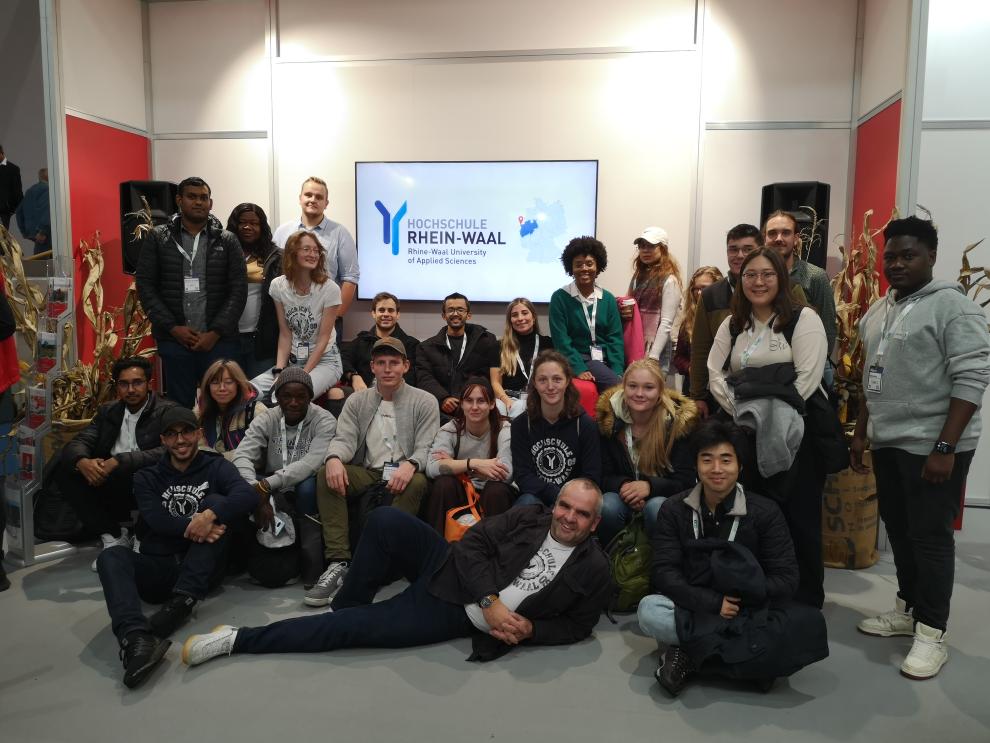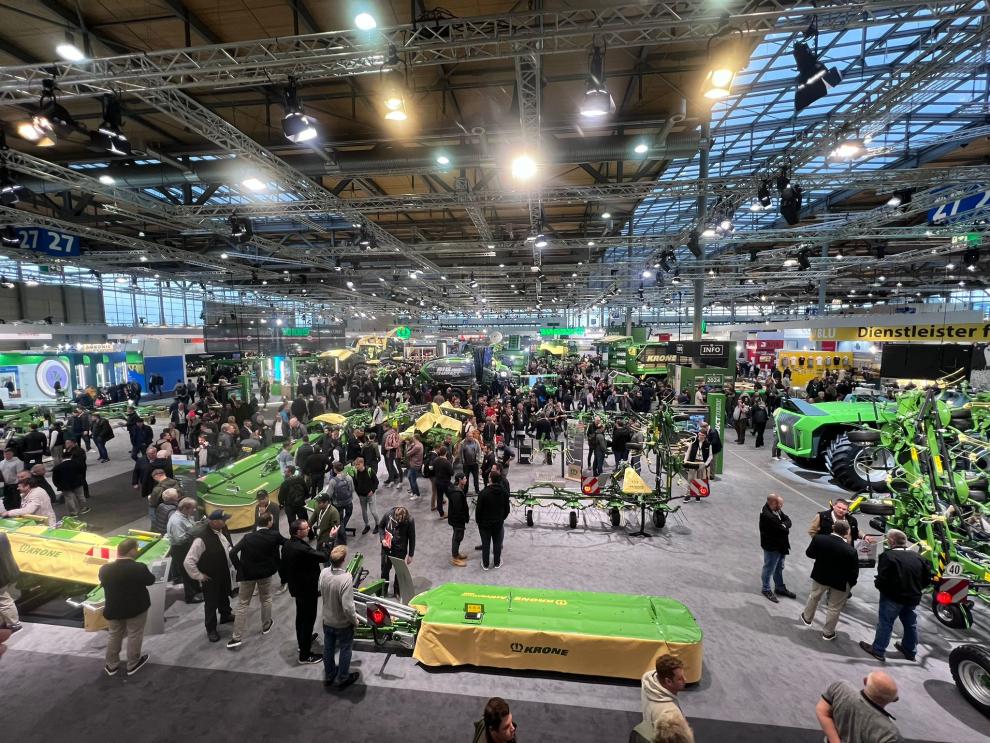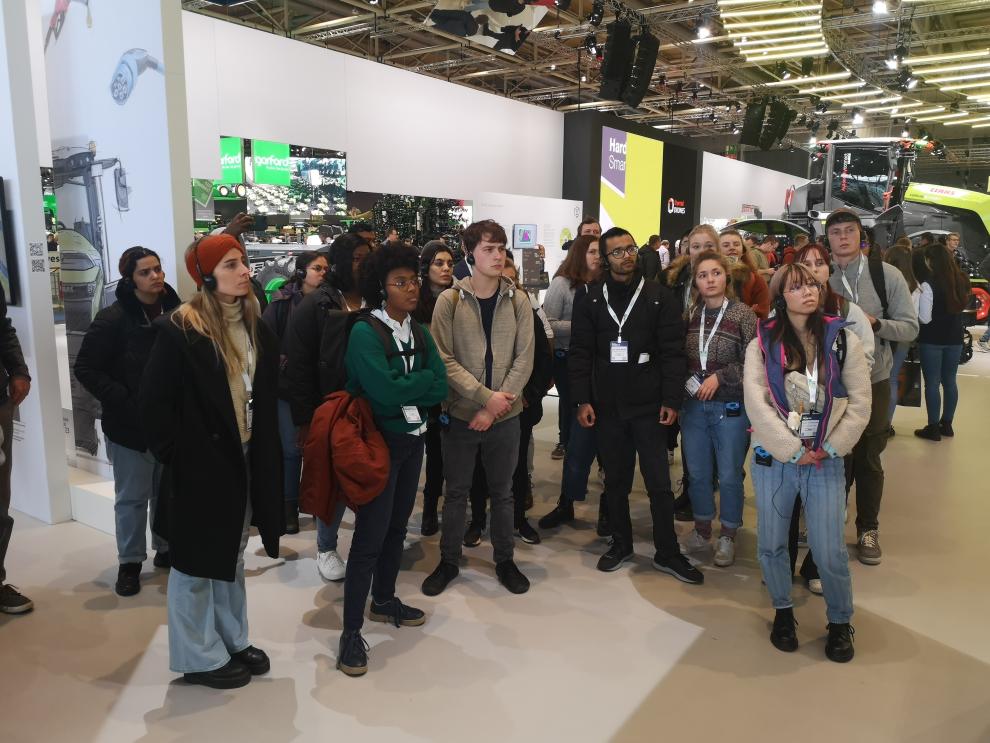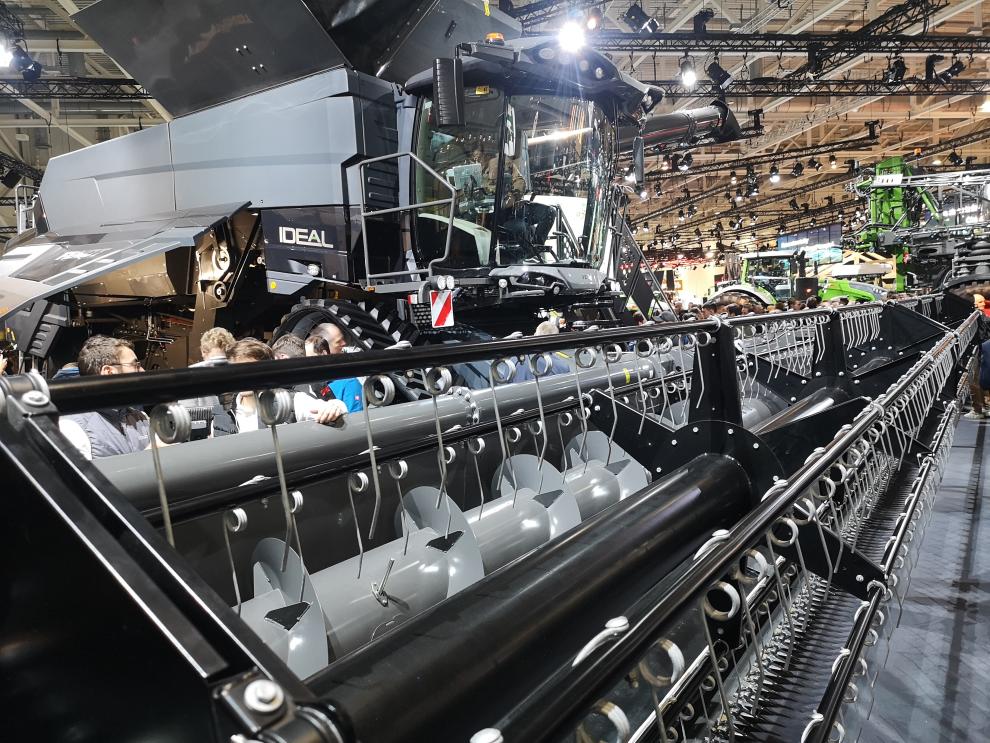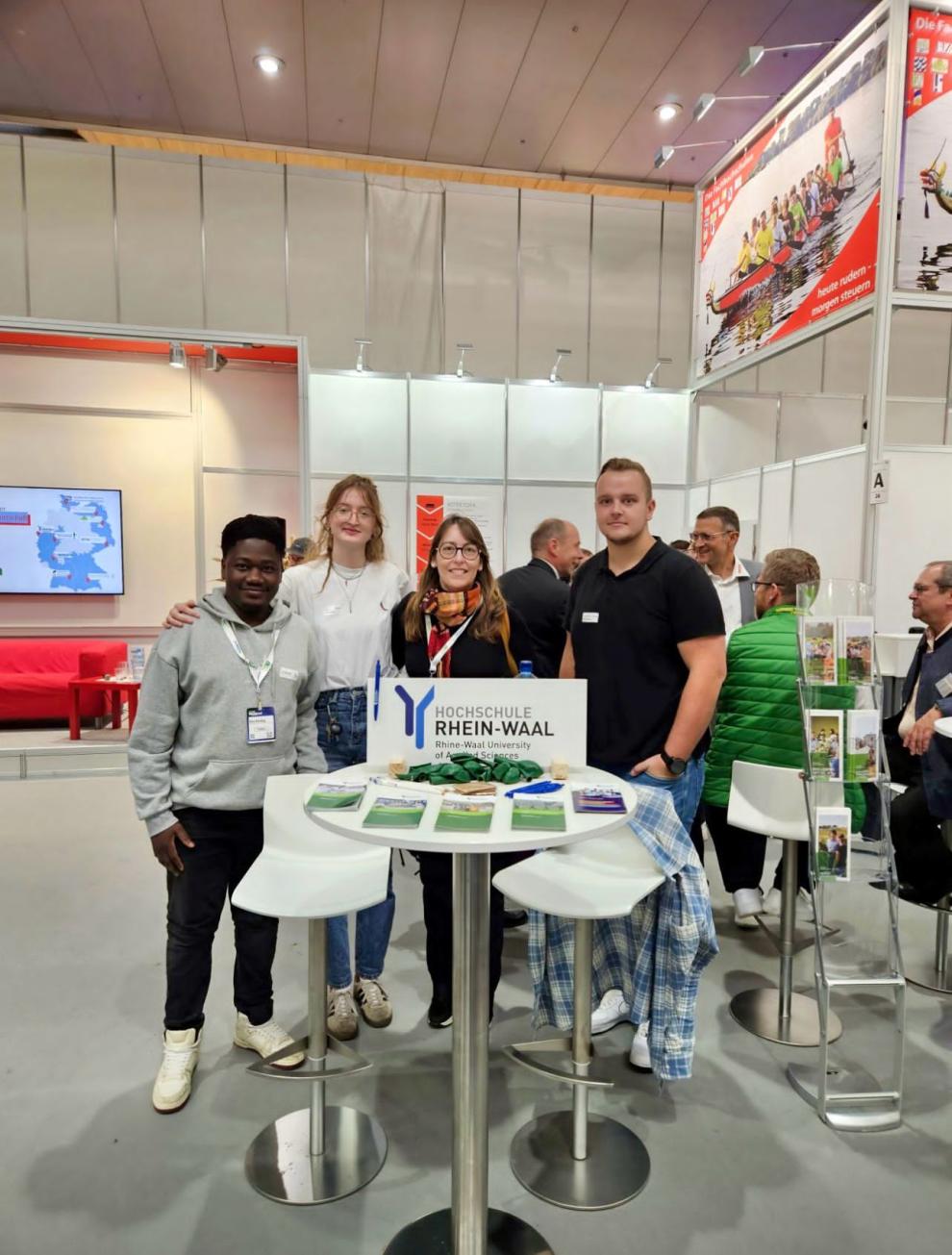The year in review: The Faculty of Life Sciences at Agritechnica 2023
Between high-tech and sustainability
When Jule-Minna-Helene Wienken, a fifth semester student on the Sustainable Agriculture B.Sc. course, entered Agritechnica in Hanover, she was visibly impressed: "The size was actually the biggest surprise. It was a complete flood of stimuli and masses. The halls were hot, the light was bright and the background noise was very high." After a break due to the coronavirus pandemic, the world's largest trade fair for agricultural technology, with 470,000 visitors and 2,850 exhibitors, promised to be an enormous and informative experience. "You can see here not only how far technology has come, but also how important the balance between progress and sustainability is," says Jule.
The role of the Hochschule Rhein-Waal at Agritechnica
Together with eight other universities, she and her fellow students looked after a joint stand and took the opportunity to provide information about their universities and the courses they offer. "The most interesting thing is that there were so many people there and that we as a university worked together with other universities and tried to give people an understanding of the agricultural courses," she reports. This experience was a first for Jule and the students from the Faculty of Life Sciences, as none of them had visited Agritechnica before.
Interactions at the trade fair: Conversations and encounters
Jule found the presentations by the German Weather Service particularly interesting. "The German Weather Service was there and presented many different topics on agricultural meteorology," says Jule. She was also fascinated by the concept of insect farming. "It's about replacing soy protein by breeding maggots in a five-day cycle and then using them for pig fattening or chicken feed. In other words, finding alternative protein sources and creating sustainable cycles," she says, reflecting on the possibilities of this technology.
The students not only used the trade fair to expand their knowledge, but also to make valuable contacts. "I spoke to various people at Agritechnica and asked if they offered internships. I took brochures and business cards with me and then asked around from time to time." An excursion was also organized especially for the students to experience and discuss the latest trends and technologies in agriculture at first hand. "We organized this especially for the students of the Faculty of Life Sciences so that they could go on a day excursion," says Jule.
The presentations and stands at the fair offered Jule and her fellow students important learning opportunities. "Professor Kleinke was there, and we had a guided tour of the CLASS and KRONE stands, which presented their latest innovations and technology, so to speak," says Jule, describing the highlights. This gave the students the opportunity to make contact with important figures from the industry, such as representatives from the German Farmers' Association, agricultural machinery manufacturers and agricultural services. "Here you can see where the journey is heading," says Jule with a look that reflects both curiosity and an understanding of the complex challenges facing the industry.
A kaleidoscope of opportunities
The fair not only opened up a broad spectrum of technological innovations and current trends in agriculture for her and the students of the Faculty of Life Sciences, but also strengthened their resolve to work for sustainable agriculture. "Agriculture is the key to global challenges," says Jule, whose awareness of the urgency of climate change and food security led her to choose the Sustainable Agriculture, B. Sc. degree program. Her experiences and thoughts reflect the dynamics of an industry that is at a crossroads and must decide how it wants to shape the future.

